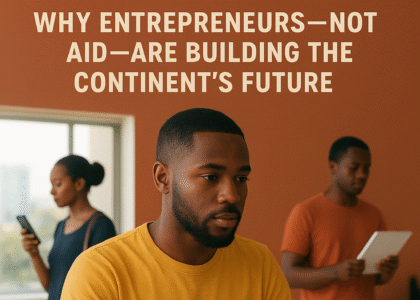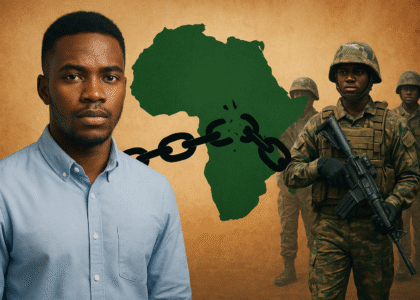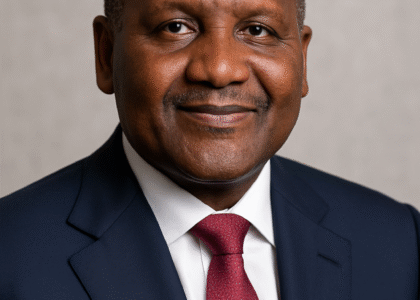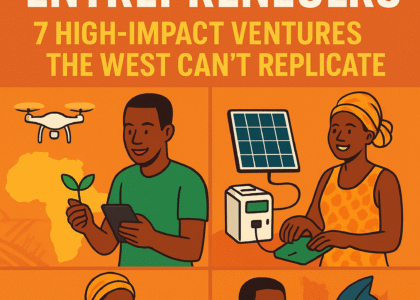- Adds “Ethiopian” and “SoleRebels
Introduction – Why Africa Needs Entrepreneurs, Not Aid
Africa is one of the richest continents on Earth—rich in people, land, culture, and natural resources. Yet, it is often described in global headlines as “poor.” For decades, the narrative has been that Africa needs aid from the West to survive. But aid hasn’t built strong nations. Aid hasn’t created sustainable wealth. Aid hasn’t solved the unemployment crisis facing millions of young Africans.
What Africa truly needs is entrepreneurs—builders, creators, innovators—people who take problems and turn them into opportunities. Entrepreneurs don’t wait for government policies or foreign donors to fix things. They look at the resources around them and ask: “What can I create? What can I build that brings value to people and generates wealth for myself and my community?”
And there is perhaps no greater example of this entrepreneurial spirit than Bethlehem Tilahun Alemu, a woman who started in one of the poorest neighborhoods of Addis Ababa, Ethiopia, and went on to create a global footwear brand that competes with Nike and Adidas. She achieved this not through foreign aid or charity, but by empowering her community, utilizing local resources, and thinking like a global entrepreneur.
Her story proves something powerful: Africa’s future will not be built by aid. It will be built by Africans, through entrepreneurship.
—
Bethlehem Tilahun Alemu’s Story – From Addis Ababa to Global Entrepreneur
Bethlehem was born in the Zenabwork area of Addis Ababa, a neighborhood that, like many in Africa, faced high unemployment, limited opportunities, and very few role models for success.
She watched as talented artisans—men and women who could weave, sew, and craft with their hands—struggled to make a living. She also noticed a problem: people in her community had skill, but no platform. They could create, but they had no market.
Instead of accepting the poverty around her as “normal,” Bethlehem asked a simple but powerful question:
What if I could turn these local skills into a global product?
With that question, SoleRebels was born.
—
The Birth of the SoleRebels Brand
Bethlehem’s inspiration came from the traditional Ethiopian “selate” sandal, a type of shoe made from recycled tires. It was a local invention—simple, practical, durable—but never scaled into a business.
She decided to modernize the concept. She recruited local artisans, taught them to make stylish, eco-friendly footwear using recycled tires, organic cotton, and locally sourced materials.
The result was SoleRebels, launched in 2004.
This was more than just a shoe company. It was a revolution:
Sustainability → long before “eco-friendly” became a buzzword, SoleRebels was recycling tires into shoes.
Community empowerment → Instead of outsourcing production to factories in Asia, SoleRebels created jobs for local artisans.
Made in Africa, for the world → the brand carried an unapologetically African identity, proving that African products could compete on the global stage.
Bethlehem turned what people saw as “poverty” into a global competitive advantage.
—
How SoleRebels Became a Global Sustainable Brand
SoleRebels didn’t just stay in Ethiopia. Bethlehem had a bold vision: to compete with global footwear giants.
Her shoes began selling online, reaching customers across Europe, North America, and Asia. Soon, SoleRebels became the first African consumer brand to open retail stores around the world—from Addis Ababa to Vienna to Silicon Valley.
Bethlehem’s achievements include:
Being listed by Forbes as one of the World’s Most Powerful Women.
Speaking at the World Economic Forum as a voice for African entrepreneurs.
Being named one of Africa’s Most Successful Women.
Growing SoleRebels into a multi-million-dollar business.
And she did all this without foreign aid.
Her success story carried a simple but powerful message: Africa doesn’t need pity—it needs platforms.
—
Bethlehem’s Philosophy – Africa Can Compete
Bethlehem has often said, “I am not in business to be the best in Ethiopia. I am in business to be the best in the world.”
This mindset is rare in Africa, where too many entrepreneurs think only in local terms. Bethlehem believed from day one that Africa could produce world-class products—not just raw materials.
This is critical. For too long, African nations have exported raw goods—coffee, cocoa, crude oil, gold—only to import finished products at ten times the price.
Bethlehem flipped the script. She added value in Africa and sold globally.
Her philosophy teaches us that:
Africa can compete with the best brands in the world.
The key is value addition, not raw exports.
Entrepreneurship is the most powerful driver of African growth.
—
The Entrepreneurship Mindset Africans Must Adopt
Bethlehem’s journey reveals the mindset every African entrepreneur needs:
1. Think Beyond Survival → Don’t just start a business to survive; start one to grow, scale, and dominate.
2. Leverage Local Resources → What you need is already around you—people, skills, and materials.
3. Go Global From Day One → Don’t think small. If your product solves a problem, the world is your market.
4. Be Fearless About Competition → Africa doesn’t have to “catch up.” We can lead.
Entrepreneurship is not just about making money. It’s about creating wealth, dignity, and independence.
—
The Wider Movement – Africa’s Youth as Builders
Africa has the youngest population in the world—over 60% of its people are under 25. This is either a massive risk or a massive opportunity.
If governments cannot create enough jobs, the only solution is entrepreneurship.
Bethlehem’s example shows what is possible when one person decides to build instead of waiting. Imagine if millions of young Africans did the same.
Entrepreneurship can:
Create jobs where none exist.
Turn local problems into profitable solutions.
Build global brands rooted in African culture.
This is why communities like The Africa Builders are so important—because they inspire, equip, and connect young Africans to take this path.
—
Challenges African Entrepreneurs Face
Of course, it’s not easy. Entrepreneurs in Africa face real obstacles:
Access to funding → Banks don’t support startups, and investors often overlook African talent.
Poor infrastructure → Power cuts, bad roads, limited internet.
Policy environments → Corruption, red tape, and lack of support for small businesses.
Global competition → Western brands dominate markets.
But as Bethlehem’s story shows, these challenges are not excuses. They are simply obstacles to overcome.
—
Solutions & The Africa Builders’ Call to Action
At The Africa Builders, we believe the solutions are clear:
1. Build Entrepreneurial Ecosystems → mentorship, accelerators, and support networks.
2. Encourage Local Investment → Africans must invest in Africans.
3. Promote Value Addition → Stop exporting raw goods, start exporting finished products.
4. Leverage Digital Tools → Social media, AI, e-commerce platforms can make African brands global.
5. Empower Communities → Entrepreneurship is not individual—it is collective.
Bethlehem proved it: one business can transform a community. Imagine what millions could do.
—
Bethlehem Tilahun Alemu’s Legacy – and What Comes Next
Bethlehem is not just a successful entrepreneur. She is a symbol.
Her story says to every young African: “You don’t need aid. You don’t need permission. You don’t need to leave Africa. You can start where you are, with what you have, and build something global.”
Her legacy is this: Africa’s growth is in our hands. Entrepreneurs will build it.
And that’s the heart of The Africa Builders movement.
—
FAQ Section (Practical Guide)
Q1: How did Bethlehem Tilahun Alemu start SoleRebels?
She started in Addis Ababa with local artisans, recycled tires, and $0 in foreign aid.
Q2: What makes SoleRebels different from global footwear brands?
It is eco-friendly, community-driven, and 100% African-made.
Q3: How can young Africans start a business with limited resources?
Begin with what’s around you: local skills, natural resources, and digital tools to reach global markets.
Q4: Why is entrepreneurship more effective than aid for Africa’s growth?
Aid creates dependency; entrepreneurship creates wealth, dignity, and jobs.
Q5: What role do communities like The Africa Builders play?
They provide mentorship, tools, and networks that help entrepreneurs grow faster.
—
Lessons African Entrepreneurs Can Learn from Bethlehem Tilahun Alemu
Bethlehem Tilahun Alemu has proven what many still doubt: Africa can produce world-class businesses. Africa can create global brands. Africa can build prosperity—not through charity, but through entrepreneurship.
The question is no longer “Can Africa do it?” The question is: “Will YOU be the next builder?”
At The Africa Builders, we believe the answer is YES.
Start where you are.
Build with what you have.
Think global.
Be fearless.
Because the future of Africa is not in aid.
It is in the hands of her entrepreneurs.





